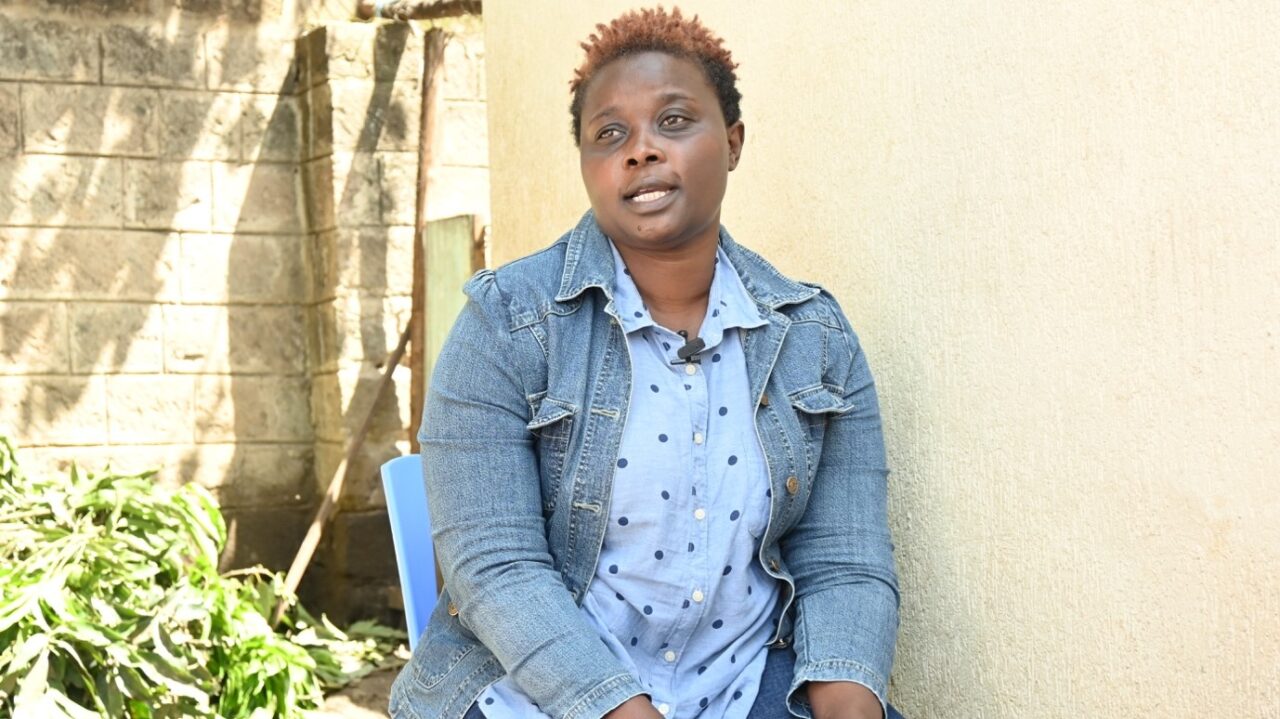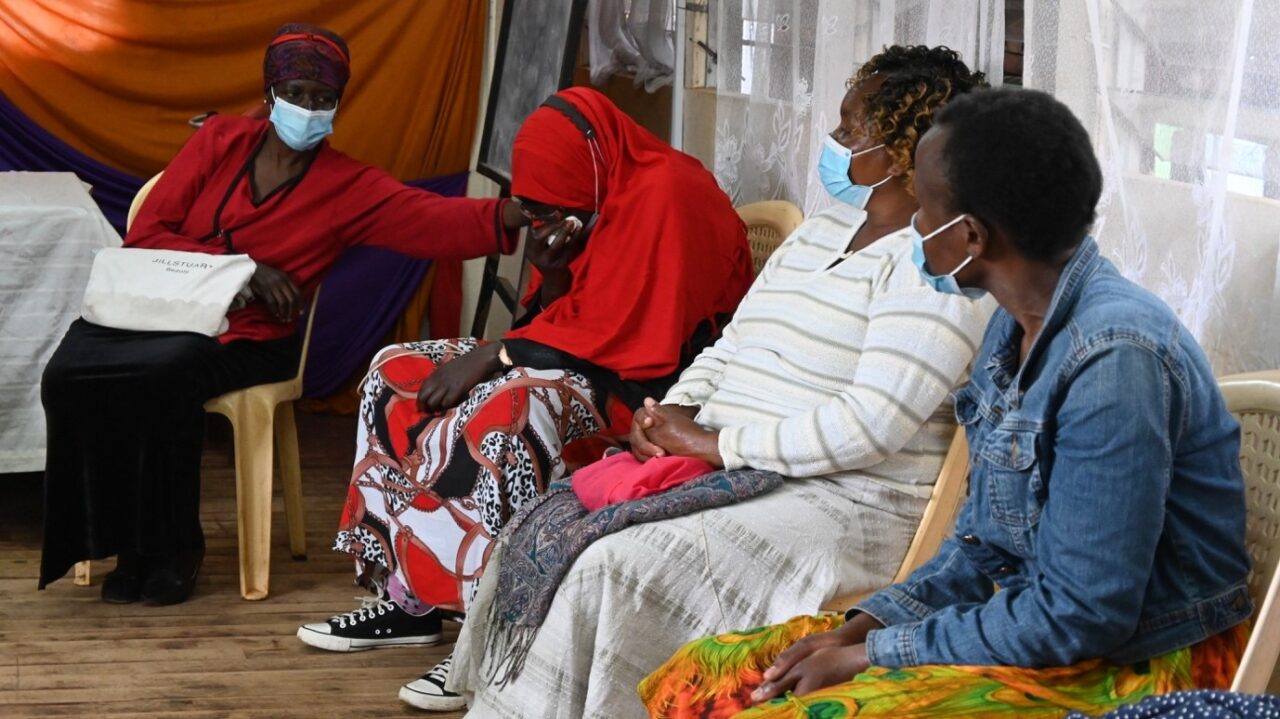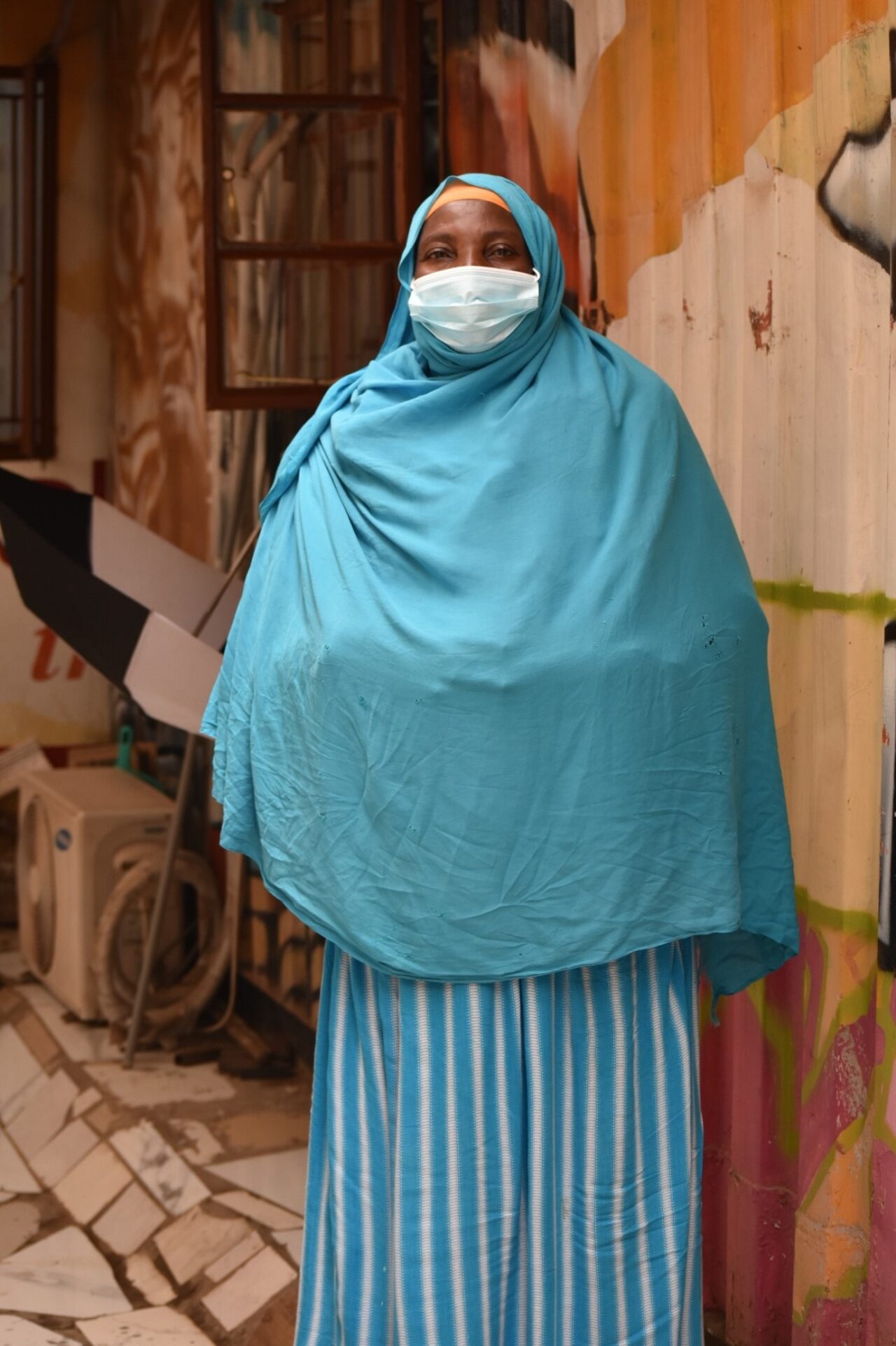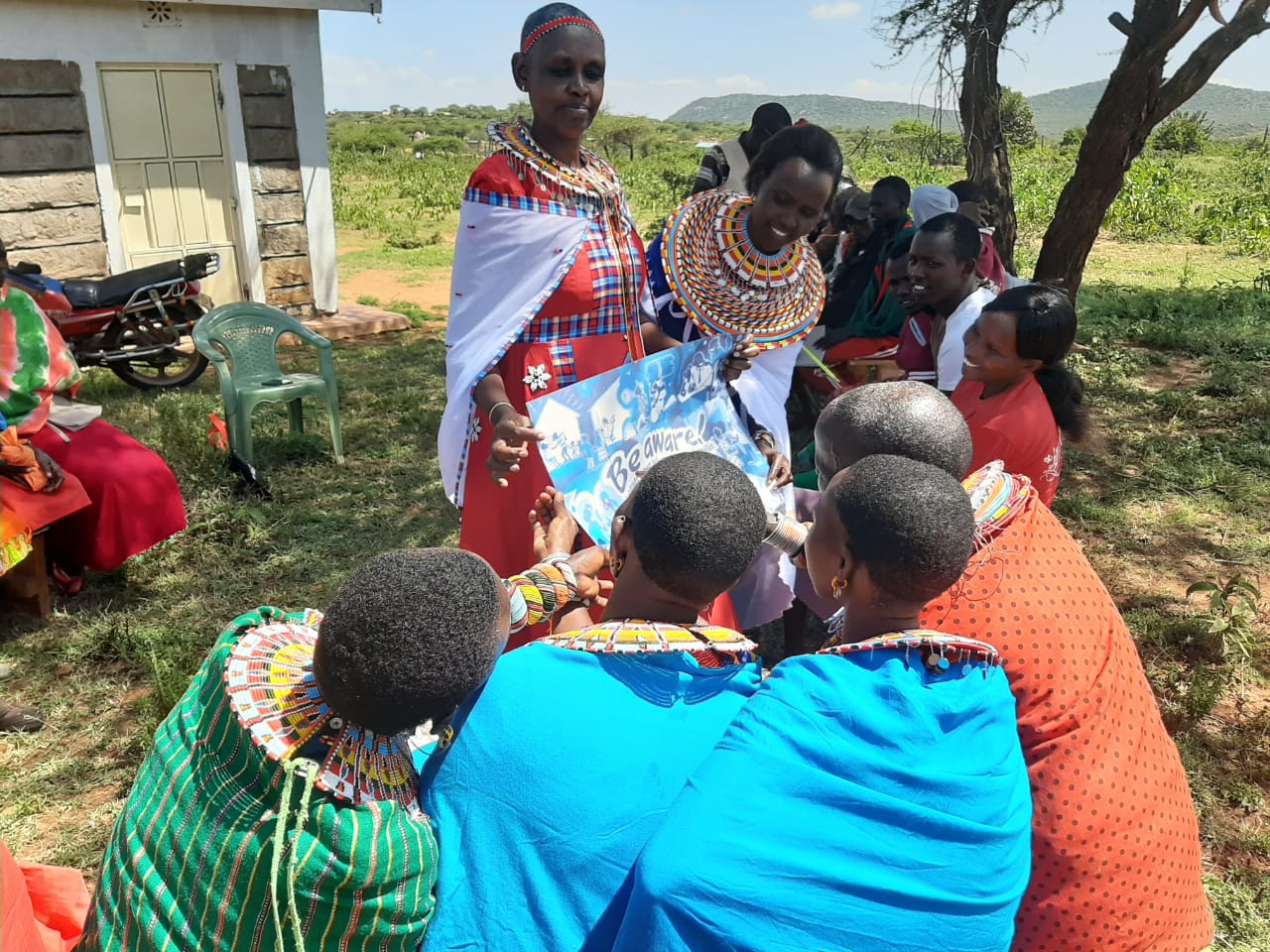Getting into Maisha Girls safe house in the Eastland’s part of Nairobi County is a numbing experience. When the gates are open, we are welcomed by Ms. Florence Keya, the founder of the safe house.
Success Stories Archives - Page 3 of 6 - CREAW KENYA
On this cold chilly morning, a group of women met in Mchanganyiko social hall in Kibera. As I approach the hall, I am welcomed by murmurs. A group of 12 women, seat pensively, trying to create a rapport in pairs.
The mother of two was now struggling to make ends meet at home as the sole bread winner. She says as the country was grappling with cushioning it’s citizens from the deadly virus, she was cushioning her home from disarray, as her husband had abandoned them when he could not support the family economically.
Life in the informal settlements of Kibera can be harsh economically. It can equally be tough, most especially for a woman who is living a life of hand to mouth, to cater for her sons basic needs.
Getting into Kayole, an informal settlement within Nairobi, is not a walk in the park. The place is a beehive of activities, as everyone busies themselves with the hustle and bustle of eking a living. At the Masimba junction, we meet Raphaela Wangari, busy tidying up her shop. She has just received a new stock of eggs to add to what she had. Minutes later, her general store, commonly referred to as a duka, is a swam of activities as clients line up to buy basic commodities found at her shop.
We meet Neema* (not her real name) in the informal settlements of Kawangware where she has been living for six months since her husband of 10 years beat her and threw her out in the cold in the wee hours of the night with her two children.
“For the last 10 years I have been married to him, there has never been peace in our home. Occasionally, we would fight even on the slightest provocation,” she says, adding that everything changed when she lost her job; her husband threw her and her two young children out in the cold, and she was left to fend for her children with no income in sight.
Sadly Neema* is not the only one facing domestic violence: her experience mirrors that of many women and girls who are increasingly being trapped with their abusers at home.
With the raging cases of COVID-19 pushing households into economic slumps, women and girls “locked” with their abusers are also finding it difficult to seek safety away from violence marred homes- cutting them off from their supportive networks and resources that could help them.
Like Neema, Kadija ( not her real name) is also another survivor of domestic violence from the informal settlements of Kibera. It has only been a month since she left the shelter where she had sought refuge after receiving constant abuse from her husband that only worsened during the pandemic.
“I am unemployed and depended on my husband. Because of the pandemic, he received a pay cut and we could barely afford to pay for food and rents. Many times we would fight even over minor things. I feared for my life and that of my children,” says 29-year-old Kadija who is now separated with the husband.
As the pandemic keeps raging on, CREAW’s owned hotline-0800720186 has been a buzz with women and girls making frantic calls to report violations and seek legal and referral services. On average, the hotline receives 90 cases in a month, this compared to 20 cases during the same time last year. Similarly, the rising incidences of violence against women and girls have been further affirmed by the data from the National gender based violence (GBV) hotline 1195, indicating a 55 percent surge with women accounting for nearly 70 percent of those cases.
With the pandemic disrupting access to essential support services to survivors of GBV, CREAW, with the support from UNDP Kenya, adapted its intervention in the community during the pandemic to ensure that women and girls- survivors, especially those living in the informal settlements of Nairobi receive the much needed support to heal and build resilience beyond the pandemic.
This includes, free legal information and representation, psychosocial support to help survivors heal from their traumatic experiences. In-addition, CREAW also integrated the survivors to the existing livelihood cash reliefs intervention supported by the European Union in Kenya and shelter services as they reorganise their lives.
We meet Cecilia Ekeno at a mentorship session she is having with young girls at the Anti-Poaching Unit Dispensary grounds in Burat Ward, Isiolo County. Here, she is having a heart-to-heart talk with the girls about fundamental human rights, including the right to live free from violence and child marriages.
“When schools close, we bring girls together in a safe space and talk to them about their sexual and reproductive health owing to the many cases of teen pregnancy that we have been experiencing in this area,” says Cecilia.
18 year old *Lelerewa present at the mentorship sessions is among the girls whose life changed for the better courtesy of the Inua Mama group.
When a man well known to her defiled her leaving her pregnant; it is the Inua Mama group that came to her aid, supporting her through psychosocial sessions as she journeyed through the legal corridors. Though it took months before the perpetrator was apprehended, the women ensured that justice was served and perpetrator locked behind bars.
“After I gave birth to my son, the women paid part of my school fees and bought school essentials,” says the delighted Lelerewa who is preparing sit for her Kenya Certificate of Secondary Education later this year.
“Our major challenge however is that the community does not see the need to have girls go to school,” Cecilia says, explaining that such level of discrimination kills the dreams of many young girls.
She notes that the low value attached to girls schooling is tantamount to killing their future and the cycle of acute poverty prevails.
In Isiolo, the deeply embedded cultural practices such as FGM, beading (a tradition in which girls are booked or engaged to older for sexual purposes) and child marriages exposes girls to early sexual debut, health risks and domestic violence.
Cecilia and 18 other members of the Inua Mama group are however working to create safe spaces and communities for girls to go to school and enjoy their full purpose.
Together with her group, Cecilia is part of the vocal women activists who have been trained by CREAW through the Wajibika Project and are now leading conversations in the community to shift away the norms that endangers the life of women and girls in the community.
Apart from the off school conversations with the girls, they have also made it part of their mandate to engage parents and local administration officials to make them part of the solution to the change needed for many girls in the area.
“We realized that we must start the conversations at home then we extend it to the larger community. Our little steps are beginning to cause ripples,” says Cecilia.
Looking at the bigger picture, the women are concerned that to date the county does not have safe homes to shelter girls who face violence in the community. They say, a gender policy for the county will go along way in streamlining a roadmap that would address the systemic issues that promotes violence against women and girls as well as avail resources to bridge the inequality gap in the County.
Sheikh Mohammed Wario listens keenly as fellow villagers take turns to converse about a topic that for long has gone unspoken yet many girls continue to wallow in pain as their right to choice and dignity is taken away.
As the dialogues proceeds, he takes turn to speak out his mind- “ we must tell ourselves the truth that we are destroying the lives of our daughters. I believe we can all be part of the change. Our girls deserve to be in school and not married off,” says the 58-year-old father of nine.
Among the Borana community living in Kina, Isiolo County where Sheikh Wario ails from, girls as young as seven years are forced to undergo genital cutting and married off to elderly men in exchange for goats and camels. 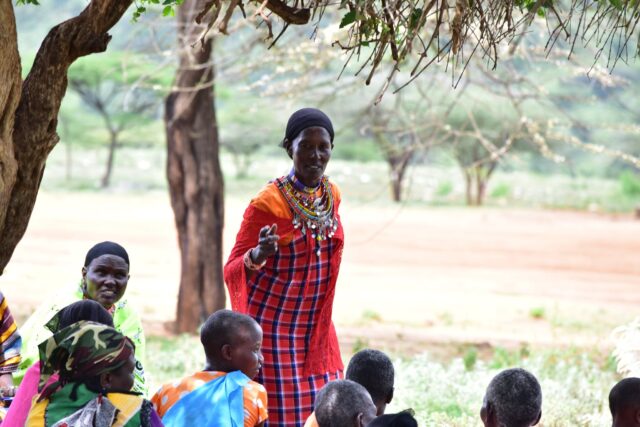
As a Sheikh, he has continuously refused to yield to the pressure to circumcise her three daughters aged 6, 10 and 13 as it is in the norm in many household. A few years ago, he had an opportunity to travel to India where he learnt about women rights issues and was inspired by fellow clerics who were working to protect their wives and daughters from discriminatory cultural practices.
And when he learnt about the teachings on gender based violence done by the Malka Bisanadi Cultural group, he was delighted to join in- bringing along his two wives to the various dialogues to also be enlightened.
Malka Bisanadi Cultural group, is one of the a women-led groups operating in Kina Sub-County of Isiolo, their initiatives cuts across women’s economic empowerment coupled with conversations geared towards eliminating violence against women and girls in the community.
For Wario, the ability for young girls to have a voice on matters regarding their wellbeing is key and as such he teachers young girls in his Madrasa session to be aware of their rights and to speak out on violations. Since he started participating in the community conversations with the women activists, he has taken keen interest in rallying other elderly members of the community to abandon the practice of FGM and give girls a voice over their bodily autonomy.
“As a Sheikh am aware that FGM is not part of Islam, it is just part of the culture that we must do away with,” says the Sheikh noting that Islamic values are intended to safeguard the well being of everyone in the community; women and girls included. 
With the anti-FGM campaigns gaining momentum in Kenya, religious leaders like Sheikh Wario plays a crucial role in delinking FGM from the religious aspects that promotes tolerance to the practice and mobilizing communities to lead the fight against it.
Over the last one year, CREAW adopted the use of a community dialogues in FGM in Narok and Isiolo counties which are key FGM hotspots to raise awareness among community members; clerics and council of elders included. In the dialogues, communities discusses emerging trends and the norms that are a threat to the survival of women and girls.
“I am happy when I meet with fellow men in the dialogues. It shows that they too are eager to learn and be part of the change we so desire for the future of our young girls,” he says.
As a Sheikh, he is held in high regards and his opinion is respected community members; as such, he is using his stature and voice to end the age-old practice of FGM.
Until recently, 80-year-old Rukia Isaack was a fervent supporter of the Female Genital Cutting (FGC), which she inculcated across generation as a right of passage to womanhood for all the girls in her community.
“I started circumcising girls at the age of 26 as an economic activity. During school holidays I would circumcise up-to 15 girls in a day,” says Rukia who has since abandoned the cut, all thanks to the house-to-house community conversations conducted by activist like Mumina Elena that is shifting how communities in Isiolo perceive and act to

wards FGC.
Mumina now 34 years old was among the girls who passed through the hands of Rukia. She was 10 years old then. Today, she is dutifully turning the tide, educating her community on the dangers of FGC to save girls from the harrowing ordeal.
And what a better way to cause change than starting with the woman who circumcised her!
“Rukia is a perfect example that ending FGM is possible. I am glad she heed to my call to abandon the cut,” says Mumina.
To Rukia, cutting girls was just like any other cultural ritual not knowing the harm she was causing the lives of many young girls some of them her daughters. In the occasional visits to the households, Mumina purposefully targeted to visit Rukia daily, educating her of the outlawed practice.
This turned out to be the tipping point for Rukia-“I feared going to prison.” Today; she is mobilizing the community against FGM and child marriages. During community dialogues, Rukia reminisces her experiences as a circumciser to persuade her community to abandon the cut.
When we meet on a warm Tuesday afternoon, Mumina is facilitating a community dialogues in Kambi Ordha village where Rukia is among the community members listening keening- her exquisite face is framed by a brightly toned scarf wrapped around her head and neck. She cheerfully grins as her fruity voice invites women; men and the girls gathered to a rather subject that is so dear to her- one that must be spoken out loud!

Months ago, Mumina and her co-activists received trainings from CREAW under the Wajibika Initiative supported by United Nations Trust Fund to End Violence against Women aimed at raising awareness on the dangers associated with FGM and other forms of gender based violence (GBV). It is through the trainings that she also learnt of the various ways to mobilize and rally communities against the gendered restrictions that limit that progress of girls in her community.
“The trainings opened my eyes to the day to day realities of many girls. I knew my starting point would be to change the mindset of the elderly in the community hence the pictorial illustrations came in handy,” explains Mumina in reference to the SASA! poster discussions that guides her conversations with the community on GBV issues.
Karu Ibrahim who lives in Kina Sub-County, 200 kilometers away from where Rukia resides has also downed her circumcision knife as activists continues to galvanize support from community elders, the police, men and women to end the cut. In Kina, the community conversations are also taking shape among the Borana community.
“I learnt that FGC does not help girls in any way. Even though I lost my source of livelihood, I am proud to be a good example to other mothers,” narrates the 43-year-old Karu.
“You know, FGC is something valued among the Boranas. It inculcates a sense of respect. Girls who are not cut are considered dirty,” she adds.
Slowly, we are seeing communities waking up to the reality that girls too reserve the right to make decisions about their bodies and their voices cannot be undervalued anymore among the largely pastoralist community- Makai Mamo, a community activist in Kina tells us.
Apart from the community conversations, the women activists under the auspices of the Wajibika project have also employed the use of radios to reach out to the masses.
“We also hold talks with girls in schools to educate them about FGM and help them talk about their experiences,” says Makai as she explains that it was not easy for girls to speak about the taboo topic but after a series of mentorship talks, girls are now opening up and refusing to be cut.

